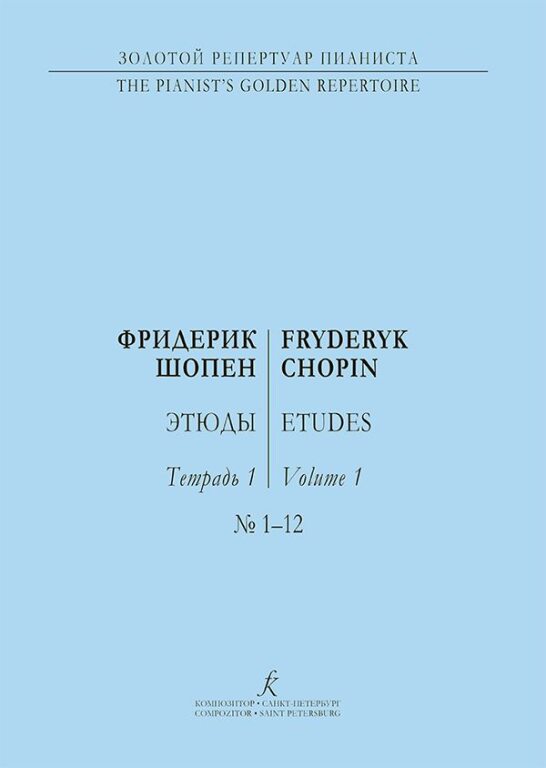Chopin, Frédéric: Etudes for Piano. Volume I. Edited by K. Mikuli
Contemporaries were attracted to the composer by his appearance, his manner of communication:
Chopin introduced into society the evenness of the mood of people who are not bothered by concerns, who do not know the words ''boredom,'' and are not attached to any interests. Chopin was usually cheerful, his keen mind quickly sought out the ridiculous even in such manifestations that not everyone catches the eye.
Franz Liszt
Etudes for piano were created by Chopin in the late 1 820s and early 1830s (12 etudes op. 10), in the first half of the 1830s (12 etudes op. 25), and also in 1839 (three etudes without opus). This genre, which previously had almost purely instructive, educational significance, Chopin raised to a new level. Chopin's studies are not only exercises on technology, each of them is a full-fledged artistic statement. It is no coincidence that Chopin's etudes entered the repertoire of almost all the outstanding pianists of the planet. They were played by Joseph Hoffmann and Vladimir Horowitz, Alfred Corto and Svyatoslav Richter, Solomon Kutner and Lazarus Berman, Maurizio Pollini and Grigory Sokolov ...
The attention of musicians and students is invited to a series of publications - the works of Chopin edited by Karol Mikuli.
Karol Mikuli (1821-1897) - Polish pianist, composer and teacher, student of Chopin from 1844 to 1847, author of plays for piano, ensemble compositions, and songs. As a pianist, Mikuli gave concert
 Deutsch
Deutsch English
English Español
Español Français
Français Polski
Polski Română
Română Slovenský
Slovenský Slovenščina
Slovenščina 中文
中文